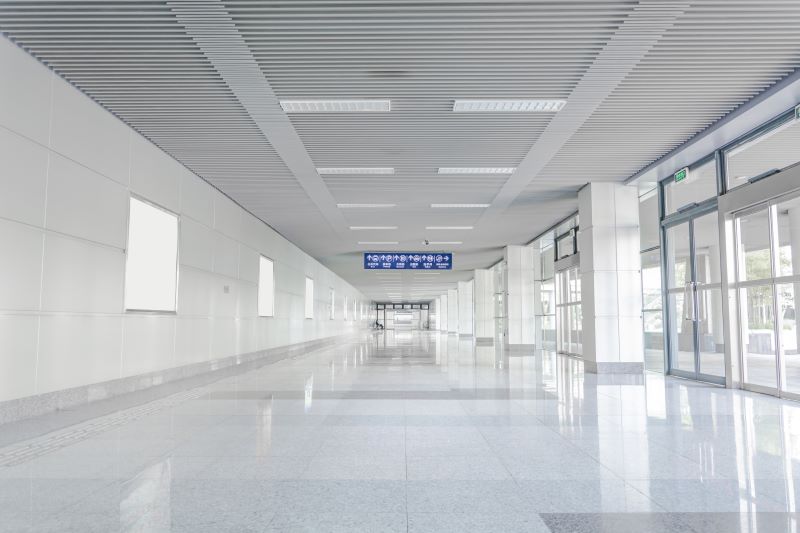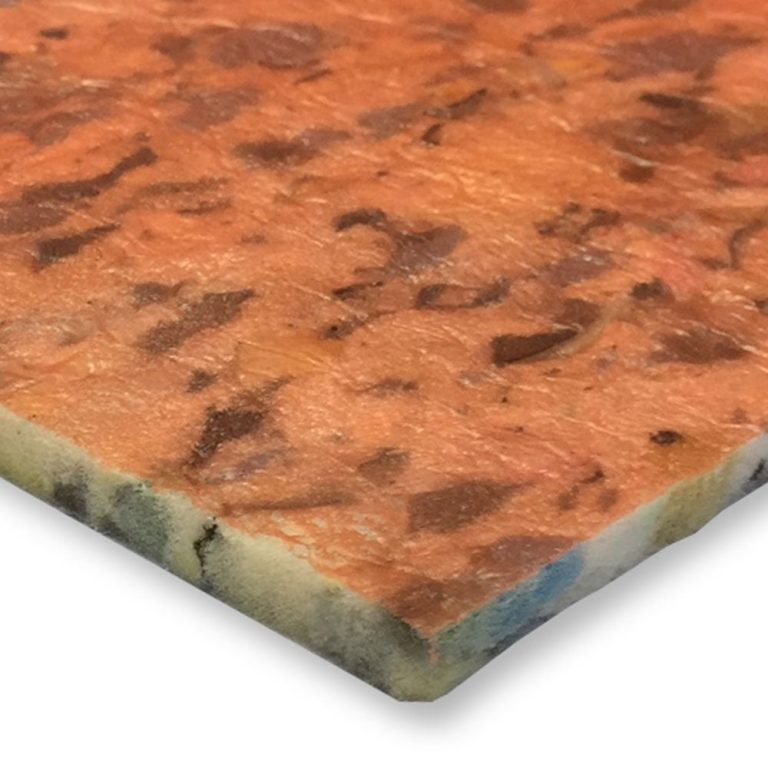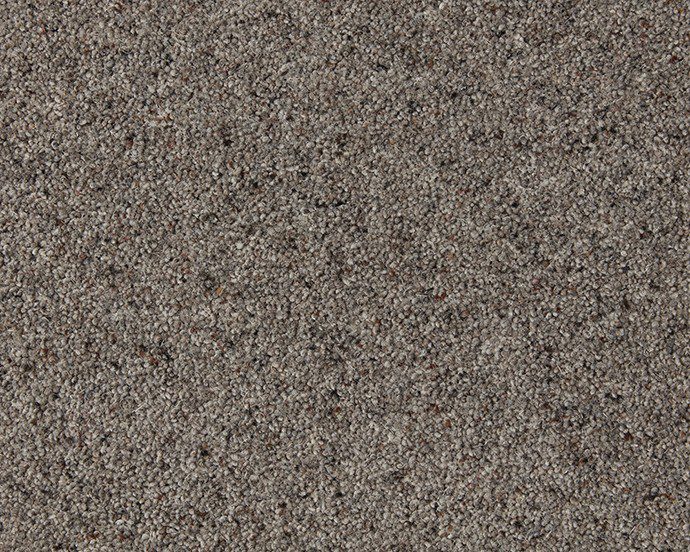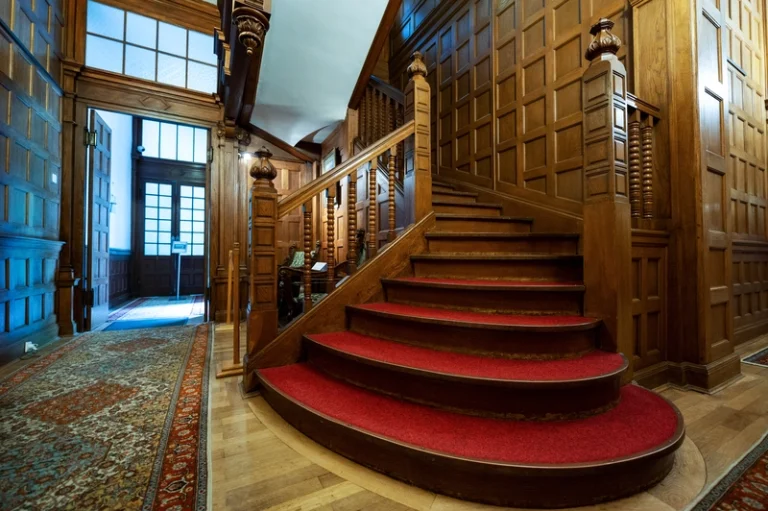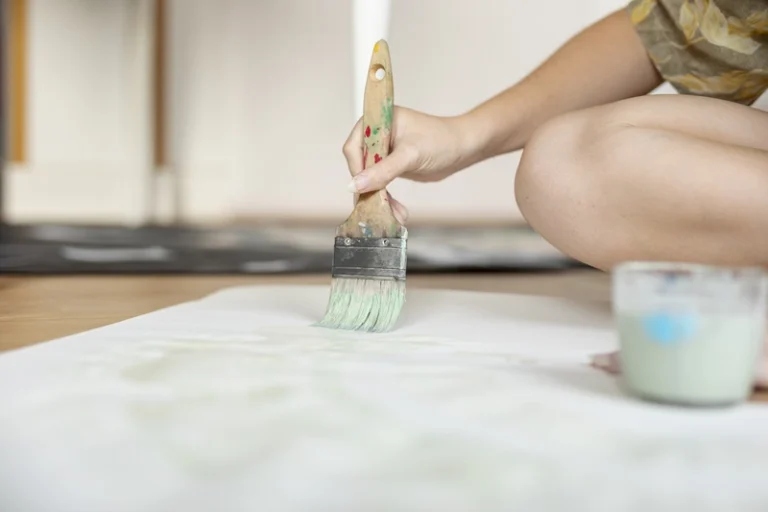Choosing the best flooring for hospitals is crucial for providing a safe and hygienic environment for patients, staff, and visitors. Factors such as durability, maintenance, and noise reduction play a significant role in the decision-making process.
We will explore the importance of selecting the best flooring for hospitals, factors to consider when making a choice, and the hospital flooring types that are most suitable for healthcare settings. Discover how the right flooring can make a difference in hospital settings here.
Importance of Choosing the Best Flooring for Hospitals
Selecting the appropriate flooring for hospitals is crucial for maintaining high standards of safety, hygiene, and overall patient well-being.
What kind of flooring do hospitals use? The choice of hospital flooring materials plays a vital role in infection control by creating a barrier against bacterial growth and facilitating easy cleaning and maintenance.
Hospitals must adhere to strict regulations and certifications like LEED and Green Guide for Healthcare, which emphasise sustainable and environmentally friendly practices in healthcare facilities.
Quality flooring not only contributes to a clean and welcoming environment for patients, visitors, and staff but also enhances the overall aesthetics and functionality of healthcare spaces.
a. Safety and Hygiene
Safety and hygiene are paramount considerations when selecting hospital flooring types, especially in the UK where stringent regulations demand the use of materials like vinyl flooring and safety flooring to mitigate infection risks such as MRSA. Healthcare organisations prioritise hygiene to safeguard patients and staff.
Hospitals in the UK also emphasise the importance of easy maintenance and durability in flooring choices, as frequent cleaning is crucial to prevent the spread of pathogens.
Hygienic surfaces like vinyl and safety flooring offer antimicrobial properties that inhibit the growth of bacteria, enhancing infection control measures. These materials are designed to withstand high levels of foot traffic and moisture, ensuring a safe environment for both patients and healthcare workers. By investing in quality flooring solutions, hospitals in the UK can effectively combat the transmission of infectious diseases and maintain optimal safety standards.
b. Durability and Maintenance
Hospital flooring materials must exhibit exceptional durability and ease of maintenance to withstand the high foot traffic and rigorous cleaning protocols in healthcare settings. Resilient materials like resin and Polyflor are preferred choices for their longevity and suitability in commercial flooring applications.
Plus durability and ease of maintenance, the choice of flooring materials in hospitals is crucial due to the demanding environment they are subjected to. The constant movement of patients, staff, and equipment puts immense stress on the floor, making durability a key factor in preventing wear and tear.
Resin and Polyflor offer excellent resistance to scratches, stains, and chemicals, ensuring a longer lifespan compared to traditional flooring options.
c. Noise Reduction
What kind of flooring do hospitals use? In hospitals, noise reduction is a critical factor that influences patient comfort and staff productivity. So, it is advisable to use flooring that does not cause squeaking or other disturbances.
Excessive noise can disrupt sleep patterns, increase stress levels, and hinder communication between patients and medical staff, ultimately impacting overall recovery outcomes. By selecting flooring options specifically designed for noise reduction, hospitals can mitigate these negative effects and promote a peaceful atmosphere conducive to healing.
Bamboo flooring stands out for its natural sound-absorbing properties, while commercial carpeting offers durability and additional sound insulation. Karndean, a high-quality vinyl flooring option, not only reduces noise but also provides versatility in design to create soothing, visually appealing spaces in healthcare settings.
Factors to Consider When Choosing Best Flooring for Hospital
You may be wondering what type of floors are in hospitals commonly used. Basically, when selecting hospital flooring, factors such as moisture and spill resistance, anti-slip properties, and ease of cleaning and maintenance play a vital role in ensuring a safe and hygienic environment. Hospitals often opt for materials like VCT and luxury vinyl tile that meet these criteria effectively.
Moisture resistance is key in hospital settings, as spills and frequent cleaning are common occurrences. Anti-slip features are crucial to prevent accidents, especially in areas prone to wet floors. Easy maintenance is essential for minimising downtime and ensuring a clean facility.
Materials like VCT (Vinyl Composition Tile) are popular due to their durability and resistance to water damage. Luxury vinyl tile, with its stylish design options, also offers excellent performance in healthcare environments, balancing aesthetics with practicality.
a. Foot Traffic and Usage
Hospital flooring must withstand heavy foot traffic and constant usage, making durability and resilience key considerations. Government agencies and the public sector often opt for commercial flooring solutions like Karndean to ensure longevity and performance in high-traffic areas.
The impact of foot traffic and usage on hospital flooring selection goes beyond just aesthetics; it influences the overall functionality and maintenance costs of healthcare facilities. With patients, visitors, and staff constantly moving throughout the premises, the flooring needs to be not only visually appealing but also durable and easy to clean.
Commercial flooring options like Karndean have gained popularity in the healthcare sector due to their exceptional durability and resistance to wear and tear. These flooring solutions provide a cost-effective way to maintain a hygienic environment while withstanding the rigours of daily use.
b. Moisture and Spill Resistance
Hospitals require flooring materials with superior moisture and spill resistance to maintain a clean and hygienic environment. Sheet vinyl is a popular choice known for its resilience against spills and moisture, meeting the stringent requirements of healthcare facilities aiming for eco-friendly solutions.
By opting for sheet vinyl flooring, hospitals can ensure a reliable barrier against liquid penetration, preventing the growth of mould and mildew which can be detrimental to patients’ health.
The durability of sheet vinyl makes it a cost-effective choice for healthcare settings where heavy foot traffic and frequent cleaning are common.
Plus its practical benefits, sheet vinyl is also recognised for its eco-friendly properties, as it can be produced using recycled materials and is recyclable at the end of its life cycle.
c. Anti-Slip Properties
Anti-slip properties are essential in hospital flooring types to prevent accidents and ensure the safety of patients and staff.
Slippery surfaces in healthcare facilities can pose significant risks, especially in areas where spills and moisture are common hazards. Altro safety flooring stands out for its ability to provide a secure footing even under such conditions, meeting the stringent safety standards set by the healthcare industry. This type of flooring not only reduces the likelihood of slips and falls but also contributes to a cleaner and healthier environment by being easy to clean and maintain. It’s reassuring to know that hospitals prioritise the well-being of their occupants by investing in advanced materials like Altro for their flooring needs.
d. Ease of Cleaning and Maintenance
The ease of cleaning and maintenance is a critical factor when selecting the best flooring material for a health clinic, ensuring hygiene standards are met. Options like Karndean flooring, endorsed by the Green Guide for Healthcare, offer easy upkeep and contribute to a sanitary environment.
Health facilities require flooring solutions that not only look aesthetically pleasing but are also practical and functional. Karndean flooring stands out due to its durability and resistance to scratches, spills, and stains, making it ideal for high-traffic areas in clinics where cleanliness is paramount.
This type of flooring is designed to withstand the rigours of daily use while maintaining its appearance, minimising the need for frequent maintenance tasks that can disrupt clinic operations.
Types of Flooring Suitable for Hospitals
What is the best flooring material for a health clinic? Various types of flooring are suitable for hospitals, including terrazzo flooring, rubber flooring, and linoleum flooring, each offering unique benefits tailored to the specific requirements of healthcare environments.
1. Vinyl Flooring
Vinyl flooring is a popular choice for hospitals due to its durability, hygienic properties, and ease of maintenance. Options like luxury vinyl tile from Karndean and Luvanto are preferred for their resilience and suitability in healthcare settings.
Hygiene is a top priority in healthcare environments, making the antimicrobial properties of vinyl flooring a significant advantage. This feature helps in maintaining a clean and safe space for patients and staff. The seamless installation of luxury vinyl tile reduces the risk of bacteria growth, promoting a healthier atmosphere. The durability of these products ensures long-lasting performance, minimising the need for frequent replacements and repairs, which is crucial for high-traffic areas in hospitals.
See product: Amor Figueira Da Foz
b. Rubber Flooring
Rubber flooring is suitable for hospital flooring due to several key characteristics. Rubber flooring is highly durable and can withstand heavy foot traffic, rolling equipment, and frequent cleaning and disinfection, making it ideal for the demanding environment of hospitals.
In addition, rubber flooring provides excellent shock absorption, which helps reduce fatigue for healthcare professionals who are on their feet for long hours. It also provides a cushioned surface for patients and minimises the risk of injuries from falls, particularly in areas like patient rooms and hallways.
Rubber flooring typically has a textured surface that offers excellent slip resistance, even when wet. This helps prevent slips and falls, which are common accidents in healthcare settings.
Rubber flooring is easy to clean and maintain. It is also resistant to stains and chemicals, making it suitable for areas where spills of harsh substances are common.
It has sound-absorbing properties that help reduce noise levels in hospitals, creating a quieter and more comfortable environment for patients and staff.
Some rubber flooring products have antimicrobial additives that inhibit the growth of bacteria, mould, and mildew, contributing to a cleaner and more hygienic environment in healthcare facilities.
c. Linoleum Flooring
Linoleum flooring is a sustainable and durable option for hospitals, meeting the eco-friendly standards of the healthcare industry. With certifications like ecoScorecard, Linoleum Flooring offers a blend of longevity and environmental responsibility ideal for healthcare settings.
One of the key benefits of Linoleum flooring in hospital environments is its ability to withstand high traffic and resist common hospital-related spills and stains, making it a practical choice for busy healthcare facilities. Its eco-friendly nature aligns well with the sustainability goals of modern hospitals striving to reduce their environmental impact.
- Linoleum flooring is known for its low VOC emissions, contributing to better indoor air quality crucial for patient health and well-being.
- Its antimicrobial properties help maintain a hygienic environment, essential in healthcare settings where cleanliness is paramount.
- Being composed of natural raw materials like linseed oil, wood flour, and jute, Linoleum flooring is biodegradable and recyclable, further enhancing its eco-friendly profile.
d. Epoxy Flooring
Epoxy flooring is a durable and hygienic choice for hospitals, known for its longevity and seamless application. Widely used in the healthcare industry and commercial flooring projects, Epoxy Flooring offers a blend of durability and aesthetic appeal.
One of the key benefits of Epoxy Flooring in hospital settings is its resistance to bacteria, mould, and mildew, making it an ideal solution for maintaining high levels of cleanliness and hygiene. This durable flooring option can withstand heavy foot traffic, equipment movement, and frequent cleaning without showing wear and tear. Epoxy Flooring creates a seamless surface that prevents the growth of bacteria in hard-to-reach areas, further enhancing the overall sanitation of the hospital environment.
e. Terrazzo Flooring
Terrazzo flooring adds a touch of luxury and durability to hospitals, offering a blend of elegance and resilience. A popular choice for various healthcare settings, Terrazzo Flooring combines aesthetic appeal with long-lasting performance.
Its seamless surface not only exudes sophistication but also withstands high foot traffic and heavy equipment typical of hospital environments.
The versatility of Terrazzo allows for customisable designs, incorporating colour schemes and patterns that complement the overall interior décor.
Its non-porous nature makes it resistant to stains and easy to clean, a crucial feature in maintaining a hygienic space.
This flooring choice not only elevates the visual appeal of healthcare facilities but also conveys a sense of luxury and quality to patients and visitors alike.
f. Carpet Flooring
Carpet flooring offers comfort, noise reduction, and warmth in hospital environments, making it a cosy choice for patient rooms and common areas. Commercial carpet solutions designed for hospitals play a vital role in enhancing the overall ambience and comfort levels.
Patients benefit from the softness and cushioning of carpet underfoot, which helps reduce stress and provide a more inviting space for recovery. The noise-reducing properties of carpet help dampen sound levels, creating a quieter and calmer atmosphere that is crucial for healing environments. The warmth retained by carpet flooring also contributes to maintaining comfortable temperatures, enhancing the well-being of both patients and staff alike.
See product: Abingdon Deep Feeling Americano
Conclusion: Choosing the Best Flooring for Hospitals
Selecting the best flooring for hospitals involves assessing a range of factors such as durability, safety, hygiene, and patient comfort. Options like luxury vinyl tile, VCT, rubber, and bamboo flooring offer diverse solutions tailored to meet the specific needs of healthcare environments.
One of the primary considerations when choosing hospital flooring is durability. Given the high traffic and heavy equipment often found in healthcare settings, the flooring must be able to withstand constant use without wearing out quickly.
Alongside durability, safety is paramount to prevent accidents and injuries. Hygiene plays a critical role in hospitals due to the need for easy cleaning and maintenance to prevent the spread of infections. Patient comfort is a crucial factor to consider for ensuring a welcoming and soothing environment.
If you’re seeking expert advice on the ideal hospital flooring materials, feel free to reach out to us without delay. TEKA Flooring boasts professional flooring experts ready to provide tailored solutions for your every requirement.
TEKA Flooring also provides a diverse range of flooring options that can be tailored to your specific requirements, from luxurious vinyl tiles to carpets. Let’s select and checkout the products that suit your preferences.
Read Also:







